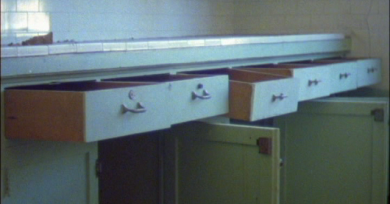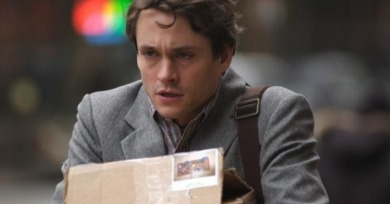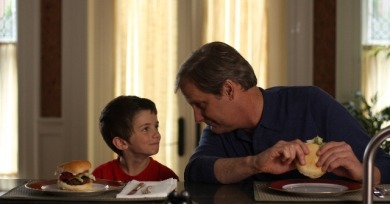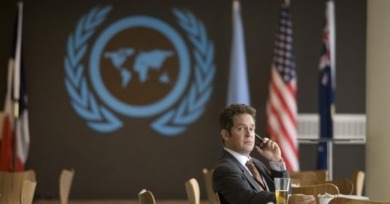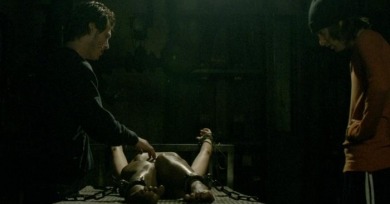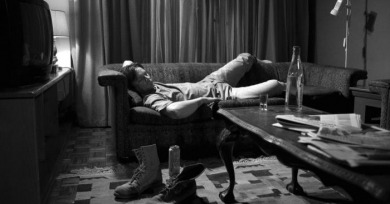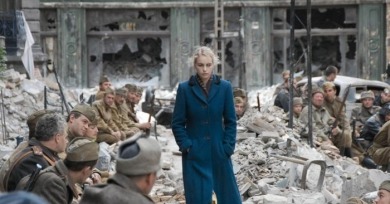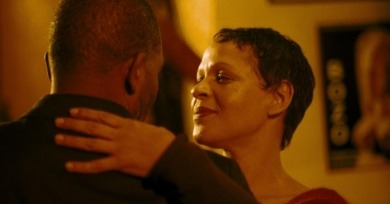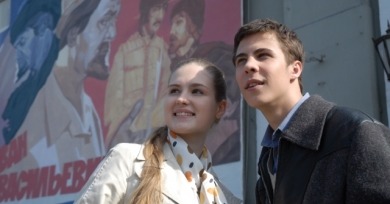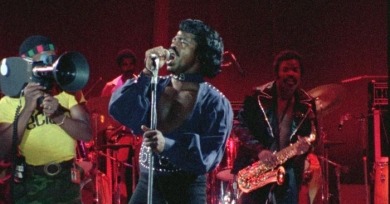Reviews
California Company Town is an unusual creature in the world of modern documentary film. It is shot on 16mm, has no characters, no interviews, and consists of so many still shots that it most closely resembles experimental landscape films.
About 70 minutes into You, the Living, we get what would seem to be a visualization of Zevon’s contention that “Except in dreams, you’re never really free.” What appears to be a static image of a newlywed couple in their apartment is revealed as an impossibly complicated traveling shot.
It’s hard to imagine a receptive audience for Max Mayer’s Adam as anyone other than moony-eyed thirteen-year-old girls—not that Fox Searchlight would ever admit that this should be its target demographic.
In the early Nineties, writer Neale Donald Walsch was living in a tent and surviving on recycled can money. He had a broken neck, a broken marriage, and a burnt-down house. Then he turned to God, and found Him surprisingly chatty.
In the Loop is an ammonia-scented satirical critique of those British politicians star-struck by Washington in the build-up to the Iraq war.
Brüno touches upon all of these subjects, plus racism, the swinger lifestyle, lousy parenting, international politics, and more, tackling such a random menu of issues that it feels both overstuffed and underdeveloped at the same time.
Among contemporary action-fantasy franchises, the Harry Potter films are unique for the multiple directorial voices behind them.
Meadows’s new film Somers Town offers a vivid contrast between the Eighties, when Britain's large unemployment numbers bred suspicion among the “true” English about their immigrant neighbors, and the 2000s, when the U.K.’s membership in the European Union has made ethnic diversity an inevitability.
Farberbock wisely ignores the larger political context for his historical drama. Hitler, Mussolini, and Stalin are mentioned in passing, as are fascism and central planning, but these references almost function as red (ahem) herrings.
35 Shots of Rum is a modest enterprise. Its narrative—which borrows liberally (and undisguisedly) from Yasujuro Ozu’s Late Spring—is perfectly comprehensible on a first viewing. But it is not a retreat.
The Vladimir Putin era has seen its share of time capsule cinema, films that revisit the recent Soviet past to interrogate or rehabilitate Russian identity.
Even amidst Ben and Andrew’s incessant, and only occasionally amusing, hand-wringing over their rash decision, never did I believe that these were two real dudes seriously considering going through with their pointless triple-dog dare.
Part time capsule, part chronicle of a transatlantic journey to Mother Africa, Soul Power captures the spirit of optimism and celebratory, homeward-bound impulse of notable black and Latin musicians through the backstage banter and energetic performances of its most legendary participants.
